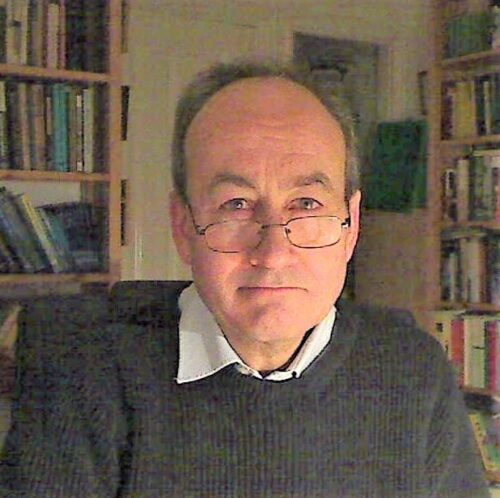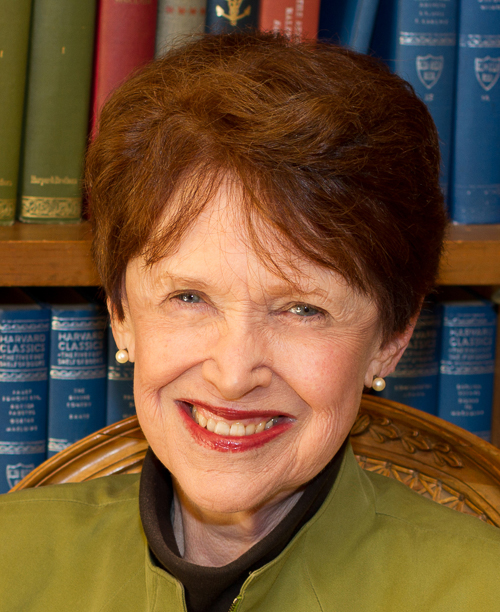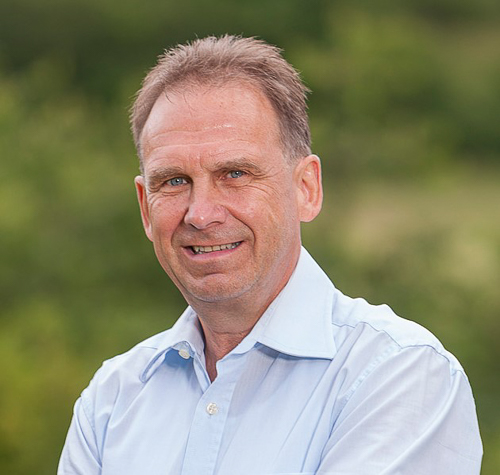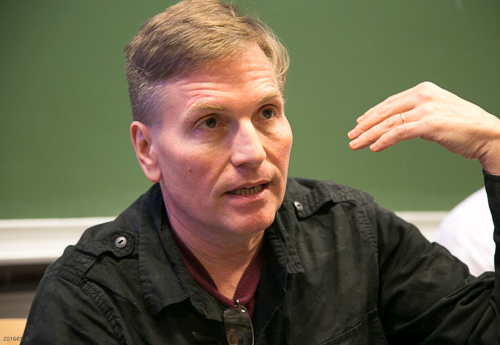
by Scott Jacobsen | Mar 19, 2025 | News
Dr. Malcolm Torry, a British academic, has been a leading researcher on basic income for more than 40 years. As Director of the Citizen’s Basic Income Trust (CBIT) from 2001 to 2020, and General Manager and then Treasurer of the Basic Income Earth Network (BIEN) from 2016 to 2024, he played a key role in policy discussions and economic research. In this interview, he discusses basic income’s history, feasibility, and societal impact, addressing its effects on employment, automation, welfare policy, and human dignity. He argues that basic income does not disincentivize work, can be a stabilizing force, and requires proper pilot projects in developed economies to measure its full effects.
Scott Douglas Jacobsen: Today, we are with Malcolm Torry, a British academic and researcher who specializes in basic income and the management of religious organizations. He holds multiple advanced degrees in psychology, economics, and social policy, though we do not necessarily need to list them all. If it runs through the journal, it gets fact-checked—the journal is live.
Dr. Torry served as Director of the Citizen’s Basic Income Trust (CBIT) from 2001 to 2020, where he played a crucial role in developing and promoting basic income research. His extensive work includes publications such as Basic Income: A History and Citizen’s Basic Income: A Multidisciplinary Approach. His research has significantly contributed to welfare policy discussions and religious institution management, influencing academic circles and public policy debates. He has recently had an interest in Continental Philosophy.
So, thank you very much for joining me today. I appreciate you taking the time out of your day for a little Canadian me. Now, in 1985, basic income came into your world. How? Why?
To read the full article, click here.

by Scott Jacobsen | Mar 15, 2025 | News
Riane Eisler (born July 22, 1931) is an Austrian-born American systems scientist, attorney, and author known for her work on gender, family, economics, and social evolution. She pioneered the “partnership” and “domination” models of society in The Chalice and the Blade (1987). Eisler’s research spans anthropology, neuroscience, and economics, advocating for caring-based economic systems. She is the editor-in-chief of the Interdisciplinary Journal of Partnership Studies. She leads the Center for Partnership Systems, promoting equity, sustainability, and social transformation. Eisler discusses her journey from childhood as a refugee to her multidisciplinary research on societal structures. She critiques domination-based systems, arguing that they perpetuate trauma and devalue care. Eisler highlights historical and contemporary examples of partnership-oriented societies, including the Nordic nations and ancient Çatalhöyük. She challenges economic models that ignore caregiving and advocates for a “caring economics of partners.” Emphasizing the role of storytelling in reshaping cultural narratives, she calls for systemic change. Eisler concludes by stressing the need for a universal income within a partnership framework, arguing that it can transform societal norms and economic distribution.
Riane Eisler: She was confused. My childhood experiences as a child refugee with my parents, fleeing from the Nazis—when I witnessed violence, insensitivity, and cruelty—led me to questions that most of us have asked at some point in our lives: Does it have to be this way? Because we humans have such an enormous capacity for caring, sensitivity, and empathy.
It is part of our evolution. For creativity? So why has there been so much destructiveness, cruelty, and violence? Of course, I have not tried to answer these questions for many years. My life has been like pieces of a jigsaw puzzle coming together. But my calling was truly to answer that question. My work is multidisciplinary, and I emphasize multidisciplinary because it is about connecting the dots—something that is very hard to do in our siloed educational system, which we have inherited from more rigid, domination-based times.
To read the full article, click here.

by Scott Jacobsen | Feb 20, 2025 | News
Prof. David Nettle is a researcher in the Evolution and Social Cognition team at the Institut Jean Nicod, Paris, and a Professor at Northumbria University. His research spans the biological and social sciences, focusing on economic and social inequality, trust and cooperation, adversity and aging, food insecurity, and moral and political cognition. He is also interested in interdisciplinary synthesis, open science, and the application of research to public policy. His publications are freely accessible, along with an introductory R and statistics course. He has authored several books and maintains a blog on science and society.
Scott Douglas Jacobsen: How does basic income address the roots of economic inequality?
Prof. David Nettle: Basic income, under the scheme we propose, does two things.
First, it is redistributive, meaning that it brings the incomes of the poorest households much closer to the median, whilst taking from the very richest ones. It does this because we couple it with a progressive income tax. The richest households get their basic income, but it is clawed back from them through income tax. The poorest household are net gainers. Thus, basic income takes over the function of the existing welfare state in a simpler way.
To read the full interview, click here.

by Scott Jacobsen | Feb 10, 2025 | News
Dieter Althaus has been serving as the Vice President of Governmental Affairs at Magna Europe since 2011. In this role, he is responsible for managing relationships with governmental entities and overseeing corporate affairs within Europe.
Scott Douglas Jacobsen: What inspired advocacy for the “Solidarity Citizen’s Income” (Solidarisches Bürgergeld) while Minister-President of Thuringia?
Dieter Althaus: Our social system in Germany is becoming a significant problem for proper implementation due to a strong differentiation and quantitative expansion. In addition, the incentive effect for paid or voluntary work is not sufficient.
Jacobsen: How does universal basic income align with principles of the Christian Democratic Union?
Althaus: The basic principles of the solidarity society are preserved. Due to the principle of negative income tax, the system is easy to understand and it is easy to implement.
Jacobsen: What primary economic and social benefits can come from universal basic income for Germany?
Althaus: Work, paid as well as voluntary, pays off and is socially recognized. The negative income tax ensures transparent implementation.
Jacobsen: What challenges emerge from proposing the Solidarity Citizen’s Income?
Althaus: The welfare state would have to be completely rebuilt. The resulting transparent structures prevent abuse and lead to a considerable reduction in bureaucratic costs.
Jacobsen: Is the socio-economic climate in Germany more receptive to basic income since 2006?
Althaus: I do not believe that such a reform would currently be feasible in Germany.
Jacobsen: What advice is pertinent for policymakers and basic income advocates today?
Althaus: I don’t give advice. Our concept is available and could be discussed or implemented in an adapted way. The political will is not present and the potential for defamation is unfortunately great.
Jacobsen: Thank you for the opportunity and your time, Mr. Althaus.

by Scott Jacobsen | Jan 27, 2025 | News
Today, we are joined by Karl Widerquist, a political philosophy professor at Georgetown University-Qatar. He has an extensive research and publication record on universal basic income. He uses an interdisciplinary approach, incorporating economics, politics, philosophy, and anthropology into his work. He has also developed indepentarian political theory, specifically within his framework of justice as the pursuit of accord (JPA). What do indepentarianism and justice as the pursuit of accord mean?
Prof. Karl Widerquist: The idea of justice as the pursuit of accord stems from criticisms I’ve made of natural rights theory and social contract theory. We need a new framework to justify social arrangements. A well-intentioned individual seeking to organize social arrangements and interact with others should aim to cooperate rather than impose their will.
To read the full interview, click here.






